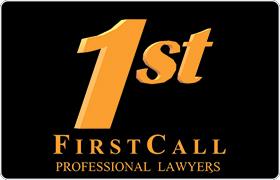Pasadena Criminal Lawyer, California
Sponsored Law Firm
-
 x
x

Click For More Info:
-
First Call Legal Services Corporation
530 Hacienda Dr Unit 101B Vista, CA 92081» view mapCriminal Defense Effective. Versatile. Decisive.
Our vision is to build strong, trust-based client relationships from our first handshake. Every challenge is an opportunity. You need the RIGHT PEOPLE for the job you want done.
760-690-3999
Richard Elia Nahigian
✓ VERIFIEDDefense attorney Richard Nahigian is the founder and managing attorney of the Law Offices of Richard Nahigian, based in Pasadena, California. Richar... (more)
Vincent W. Davis
✓ VERIFIEDMr. Davis is the founder and lead attorney of the Law Offices of Vincent W. Davis & Associates. Since 1986, Mr Davis' practice cover all areas of law ... (more)
Azad Jingozian
✓ VERIFIEDMr. Jingozian has an extensive background in criminal law, focusing on white-collar offenses, including misdemeanor infractions and felony crimes such... (more)
Justin Gregory Tahmazian
Located in Glendale, CA, Attorney Justin Tahmazian has ten years of experience working on personal injury cases. His focus includes but is not limited... (more)
David Richard Johanson
✓ VERIFIEDDavid assists clients in general corporate matters and in employee ownership, benefit, ERISA, and related business matters, with an emphasis on execut... (more)
Gina Tennen
✓ VERIFIEDLibertyBell Law Group consists of a group of elite criminal defense attorneys who have become some of the most sought after lawyers in the nation. Our... (more)
Daniel Moaddel
✓ VERIFIEDDaniel Moaddel is a criminal defense attorney serving Los Angeles, California.
 First Call Legal Services Vista, CA
First Call Legal Services Vista, CA Practice AreasExpertise
Practice AreasExpertise








